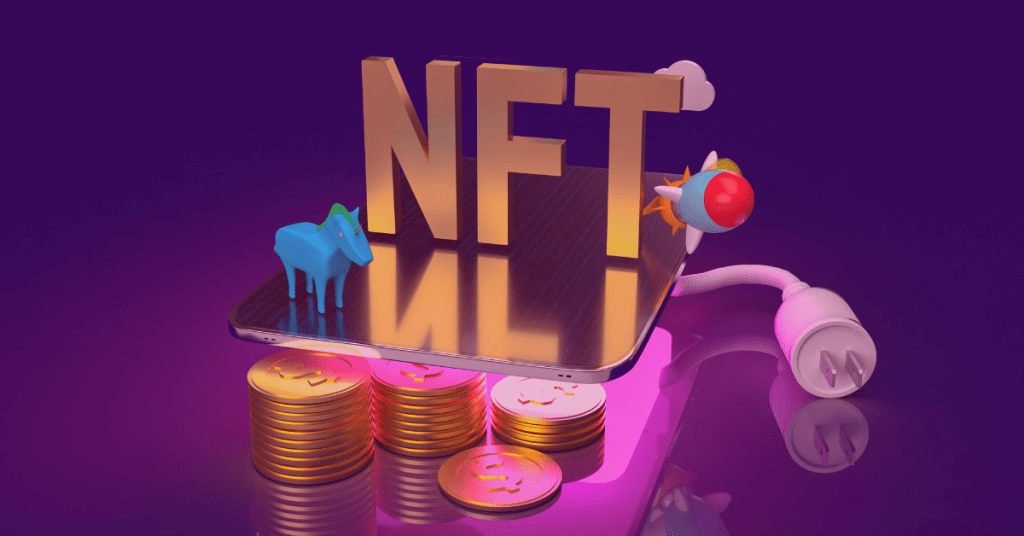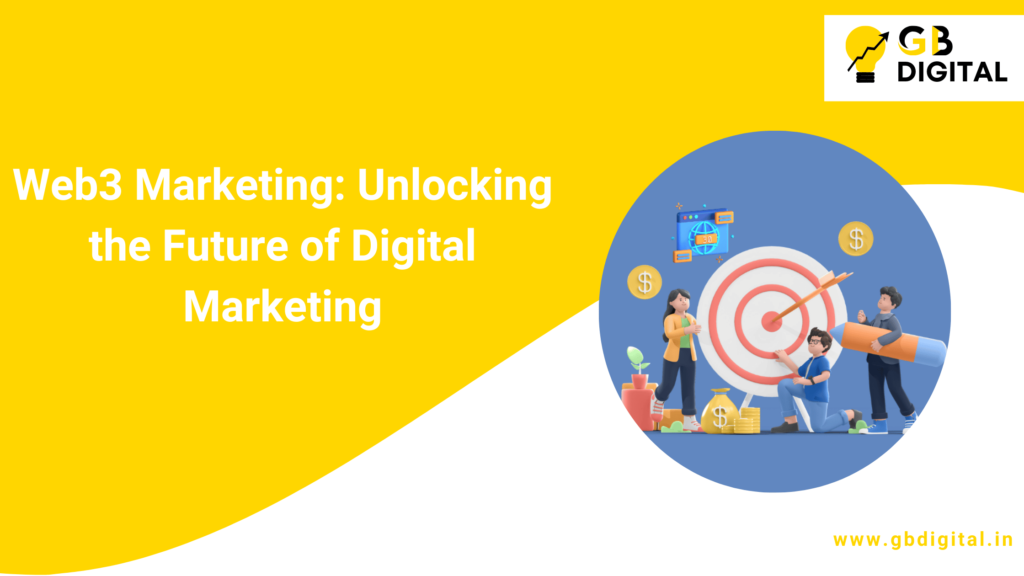Web3 marketing is revolutionizing the way businesses and brands interact with consumers in a decentralized digital world. As we move from Web 2.0, characterized by centralized control, to Web3, defined by decentralization, blockchain technology, and token-based economies, the opportunities for marketers are expanding. In this article, we’ll explore the ins and outs of Web3 marketing, its key benefits, the strategies businesses are employing, and how you can leverage this technology to drive your brand’s growth in a future-oriented digital space.

What is Web3 Marketing?
Web3 marketing refers to the utilization of decentralized technologies such as blockchain, cryptocurrencies, and NFTs (Non-Fungible Tokens) to create marketing strategies. Unlike traditional marketing in Web 2.0, Web3 places users in control, making data privacy, ownership, and peer-to-peer interactions key elements.
Key Features of Web3 Marketing
- Decentralization: Unlike Web 2.0, where large corporations dominate user data, Web3 empowers individuals to own their data and digital assets.
- Transparency: Blockchain’s public ledger ensures that transactions and data exchanges are transparent and easily verifiable.
- Token-based Economies: Users are rewarded with tokens for their engagement or loyalty, leading to innovative, community-driven marketing models.

Why is Web3 Marketing Important?
Web3 marketing represents a shift towards more user-centered strategies, where consumers have more control, transparency, and opportunities to earn from their engagement. Brands that adopt these principles can foster greater trust and stronger community ties, critical for long-term growth in the digital age.
Key Components of a Successful Web3 Marketing Strategy
A successful Web3 marketing strategy revolves around leveraging blockchain technology, building community, and rewarding users for engagement. Let’s look at some core elements:
Blockchain-Based Advertising
Web3 marketing relies on blockchain-based platforms for transparent, direct, and verifiable advertising. It eliminates middlemen (e.g., ad agencies) and ensures that ad spend is fully trackable.
- Example: Brave Browser rewards users with Basic Attention Tokens (BAT) for viewing ads. Brands pay users directly for attention, cutting out intermediaries.

NFTs for Brand Engagement
NFTs are digital assets stored on the blockchain, providing a new frontier for brand engagement. By offering exclusive, tokenized content or experiences, brands can engage with consumers on a deeper level.
- Example: Coca-Cola released a series of NFTs that allowed users to unlock unique, interactive experiences, creating a buzz around their brand while utilizing Web3 technology.

DAO (Decentralized Autonomous Organization) Participation
DAOs are member-run organizations that operate on blockchain technology. Brands can create DAOs where customers can vote on decisions, strengthening community involvement and fostering loyalty.
- Example: A DAO for a fashion brand might allow users to vote on the next clothing line, creating a strong sense of brand ownership and engagement.

Cryptocurrency and Token Incentives
Rewarding users with cryptocurrency or tokens for engaging with a brand is a powerful motivator in Web3 marketing. These tokens can later be redeemed for services, discounts, or further interactions within the ecosystem.
- Example: A travel company can offer token rewards for booking trips, leaving reviews, or referring friends, enhancing customer loyalty through incentivized engagement.
How to Integrate Web3 Marketing into Your Business
Transitioning from traditional marketing to Web3 can seem complex, but by following these steps, businesses can successfully integrate Web3 strategies:
Start with Community Building
Web3 marketing thrives on building strong communities around your brand. Utilize social media platforms, create Discord or Telegram channels, and engage with your audience regularly to create a sense of belonging.
Incorporate Blockchain Technology
Adopt blockchain solutions for transparency and trust. You could use blockchain for supply chain tracking or implement smart contracts for customer transactions to enhance transparency and reduce fraud.

Launch NFTs or Token Programs
Create branded NFTs or launch your token as part of your rewards system. Offering exclusive content, digital collectibles, or experiences through NFTs can generate enthusiasm and engagement around your brand.
Incentivize User Engagement with Tokens
Reward loyal customers or community members with cryptocurrency or tokens. These incentives can encourage deeper interaction with your brand, from completing surveys to participating in promotional campaigns.
Challenges in Web3 Marketing
While Web3 marketing presents exciting opportunities, it also brings challenges that businesses must be prepared for:
Complexity and Adoption
The technical complexity of blockchain and Web3 technologies may deter smaller businesses or those less familiar with digital innovation. Educational efforts and accessible entry points are crucial.
Regulatory Uncertainty
Governments worldwide are still figuring out how to regulate blockchain, cryptocurrencies, and NFTs. Brands must stay compliant with laws that may vary by region, which adds complexity to international campaigns.

Security and Privacy Concerns
Although Web3 is built on decentralized and secure platforms, hacks and fraud are still possible. Brands must prioritize the security of their smart contracts and digital assets to protect their community from potential threats.
Future Outlook of Web3 Marketing
Emerging Trends
As Web3 technologies evolve, several emerging trends are shaping the future of marketing:
- Metaverse Integration: Brands are experimenting with virtual spaces within the metaverse, creating immersive brand experiences.
- Tokenized Loyalty Programs: Blockchain will likely power more advanced loyalty programs, where users are rewarded with tradable tokens.
- Interoperability: Web3 is moving toward increased interoperability between different blockchain ecosystems, allowing smoother, more integrated marketing efforts.
Practical Applications
- Use Cases for Small Businesses: Small businesses can harness Web3 by creating community-driven campaigns or leveraging token-based incentives to grow customer loyalty.
- Scalability for Enterprises: Enterprises will likely adopt more advanced blockchain solutions, including digital identity verification, secure transactions, and smart contract marketing.
Conclusion
Web3 marketing is opening up new possibilities for businesses of all sizes. By leveraging decentralized technologies such as blockchain, NFTs, and cryptocurrencies, marketers can build transparent, engaging, and community-focused campaigns that stand out in the increasingly competitive digital landscape. As Web3 continues to evolve, the brands that embrace these changes will be the ones leading the future of digital marketing.
FAQs
Q1. What is Web3 marketing?
Web3 marketing involves using decentralized technologies like blockchain to create transparent, community-driven campaigns.
Q2. How do NFTs fit into Web3 marketing?
NFTs allow brands to offer tokenized content or experiences, deepening engagement and loyalty.
Q3. Why is blockchain important for marketing?
Blockchain ensures transparency, trust, and decentralized control, improving marketing efficiency and security.
Q4. What challenges does Web3 marketing face?
Web3 marketing faces challenges like technical complexity, regulatory issues, and security concerns.
Q5. What is the future of Web3 marketing?
The future includes trends like metaverse marketing, tokenized loyalty programs, and greater blockchain interoperability.








